Teen says sex assault happened at elite Asheville School
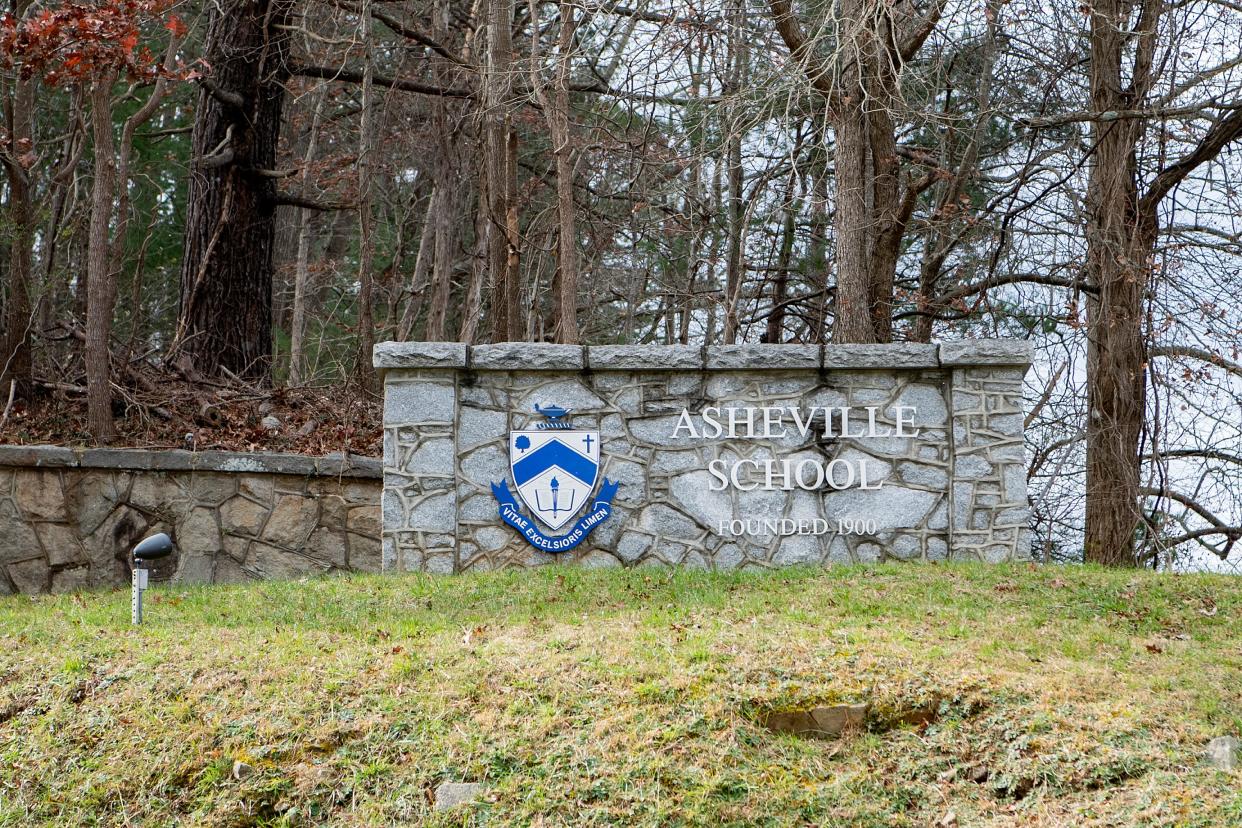
WARNING: This story contains graphic, sexual language.
ASHEVILLE – Agnes Hill will never forget what happened to her that afternoon, the last week of freshman year at Asheville School, on a bright and hot, clear blue Tuesday.
“I was looking forward to spending time with friends,” said Agnes, of the day, May 21, 2019. “I was hoping to share some laughs and forget about my schoolwork for a while.”
She was 15.
As is tradition at the elite, $63,000-a-year boarding school tucked into the woods of West Asheville, Agnes and four other students were hanging out on a blanket on the school’s hockey field, enjoying music and the shade of a nearby tree after final exams.
She remembers wearing purple Lululemon shorts.
Three of those students — a girl and two boys — were her friends. Another boy, a 16-year-old sophomore whom she had met in dining hall rotation a couple of weeks earlier, was not.
“(The boy) reached over and slid his hand down my shorts and put his fingers in my vagina. He never asked if I wanted to have a sexual interaction with him. He never asked me if he could touch me,” Agnes said.
“My mind raced, and my body froze. After he removed his hand, he got up and headed off to a review session for an exam,” she said.
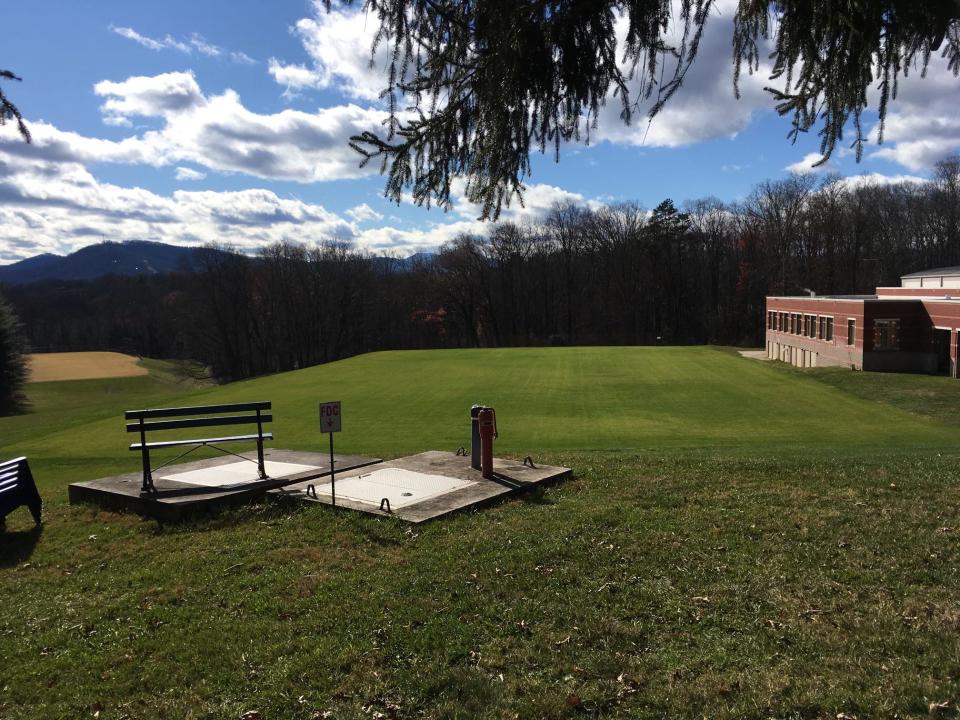
The Citizen Times normally does not name victims of sexual assault, but Agnes, now 17, wanted to do so. Her parents agreed.
Agnes would not tell an adult about the incident for a full year, when she said she found the strength to tell her therapist. It is a behavior, experts say, common among sexual violence survivors, who delay reporting or never report for fear of retaliation or of not being believed.
The Asheville Police Department said it is investigating after Agnes and her father, Dr. Michael Hill, who was faculty at the school but resigned in October, filed a criminal report Oct. 27.
May 2021: Donations down at Asheville School fundraiser in wake of alleged sexual assaults, petition
For subscribers: Asheville School alumni to pull support if amends aren't made in alleged sexual assaults
School's response: Asheville School finds no fault in its Title IX investigation for alleged sex assault; backlash
Although the school would not confirm, the male student is believed to still be enrolled at the school, more than a year after the alleged assault.
Agnes is no longer enrolled after a Title IX investigation found “insufficient evidence” of fault with the boy.
The aftermath of the incident at Asheville School - one of the most exclusive and expensive private boarding schools in the country – reveals the school’s lack of consent education and leadership in sexual assault allegations, an attempt to silence the Hill family with money and prompted a student protest.
What happened that day?
The Citizen Times recently sat down with Agnes, who at times snuggled up close to her mother and sometimes spoke with indignation and maturity beyond her years, as she recounted the incident that she said stole her childhood.
The alleged assault was so sudden that her body froze, she said. She remembered thinking, “Why aren't these people like noticing or why aren't they like saying something? But they didn't notice.”
The students in the Title IX report said they didn’t see anything, though the male friend admitted Snapchatting Agnes later and asking, “Why did you snitch on (respondent),” according to the Title IX report. Agnes told the Citizen Times and wrote in the Title IX report that while no one said anything at the time of the alleged assault, “the other male witnesses joked about it afterwards.”
The incident has haunted the once-happy, bubbly teenager, dragged her into deep depression, panic attacks and such fear, she said, from continued harassment from the boy and his friends that she withdrew from Asheville School this summer and filed a formal complaint against him with the school.
The boy admitted to committing the act in a sworn affidavit contained in the Title IX report. That report is not a public document, but a copy has been obtained by the Citizen Times.
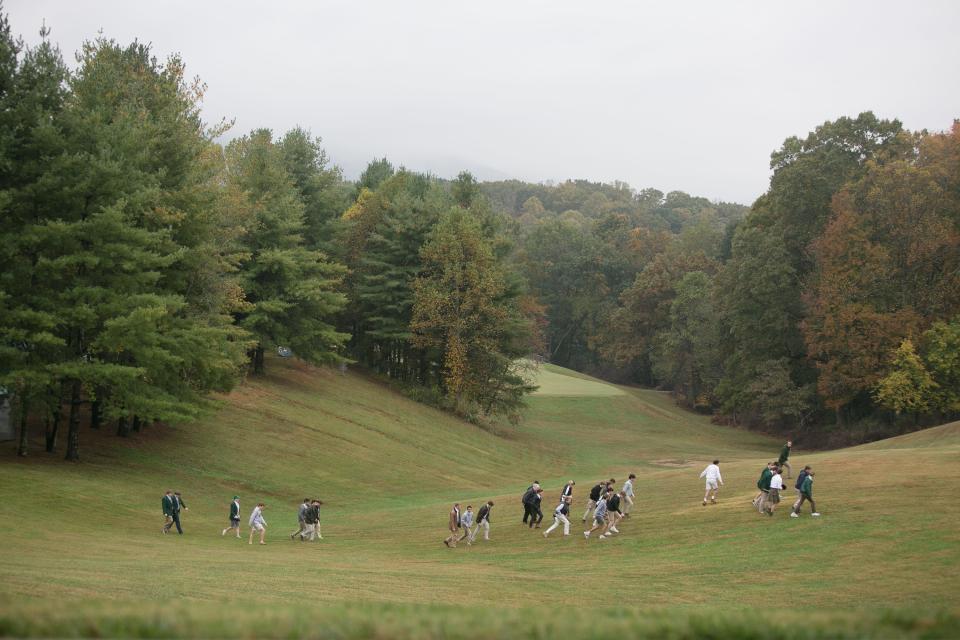
“She was facing me as we talked. I believe we were covered with a blanket also. I moved my hand down between her legs and put my hand under her shorts and underwear,” the boy wrote in the sworn affidavit Aug. 25, 2020.
“I put my finger in her vagina, later removed it and then did it again. At no point did Aggie move away from me, push my hand away, or tell me to stop or that she wasn't ok (sic) with this.” The boy also said in his statement that Agnes “arched her back” during the alleged assault.
Agnes and the others said in the Title IX report there was no blanket covering them.
“Other than that admission, his affidavit is full of lies,” Agnes said in a Sept. 4, 2020 sworn affidavit, part of the Title IX report and in response to his statement.
In her response, she also wrote:
“Immediately following the assault on the blanket, I was in a state of shock and did not know what to do. When I finally confided in my therapist, in May, 2020, about the incident, she told me how our bodies go into a state of ‘flight, fight or freeze,’ when we encounter a threat,” Agnes wrote.
“I didn't ‘arch’ my back as a signal of pleasure. Quite the opposite. I was scared and extremely uncomfortable. This was so degrading and threatening. I completely froze. My silence was not consent. My silence was fear and horror. My silence afterwards was a deep, dark, debilitating shame and me wanting to bury memories of the incident.”
The boy’s statement, according to experts, is where the school should have stopped its Title IX investigation and alerted law enforcement.
More: Lawsuits claiming sexual abuse are 'unconstitutional', Asheville School says
More: Third Asheville School lawsuit alleges sexual assault by teacher, cover-up by school
More: 4th Asheville School lawsuit: Alumnus alleges sexual abuse by faculty, cover-up
Skye David, staff attorney with North Carolina Coalition Against Sexual Assault, said the boy admitted to what appears to be the criminal act of sexual battery in North Carolina, defined as when a person, “…engages in sexual contact with another person … by force and against the will of the other person.”
Dr. Nan D. Stein, senior research scientist with Wellesley College Center for Research on Women, who has a doctorate in education from Harvard and has served as an expert witness in K-12 sexual violation lawsuits across the country, said it appears Asheville School ignored criminal law.
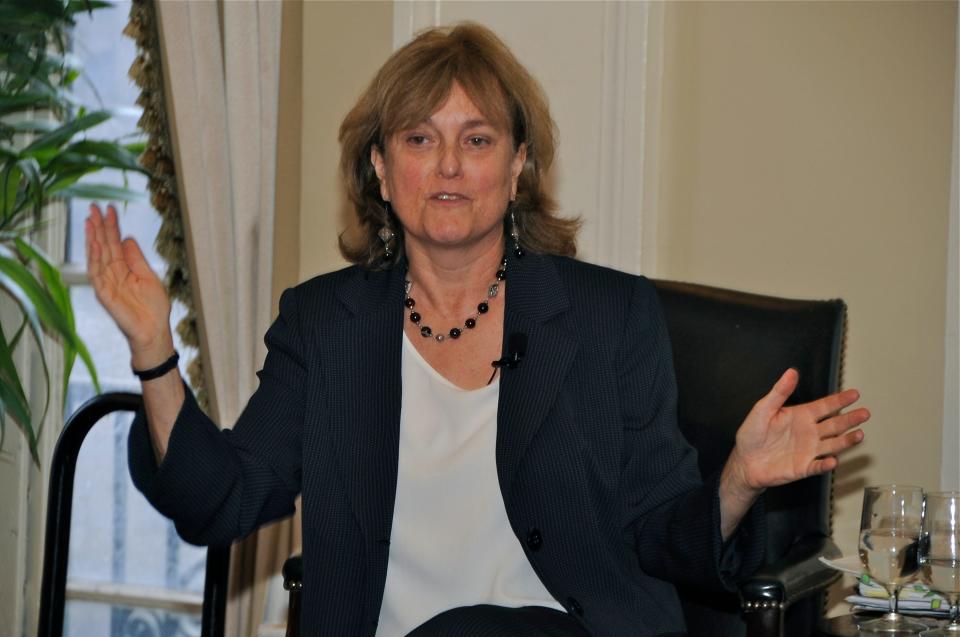
“To me, the most egregious thing is there was criminal conduct here. And that has nothing to do with Title IX, which is a complaint against the school,” said Stein upon hearing how the Title IX investigation was carried out.
“The charge should be against the boy. This is a criminal sexual assault under criminal law, irrespective of whether somebody consented or how long it took them to talk about it,” she said.
On Oct. 9, Asheville School associate director of advancement Ashly Maag, who investigated and also wrote the final decision, found no fault with the boy.
“Asheville School has concluded that there is insufficient evidence to support a finding that (the respondent) violated the school's sexual misconduct policy,” she wrote in the report.
Maag further wrote in her decision:
“Of note, the school's policy provides that consent must be “informed, voluntary, and mutual … and that silence or absence of resistance, does not imply consent. (The respondent) has not indicated that he understood Miss Hill’s consent from any absence of resistance, but from Miss Hill's reaction at that time.”
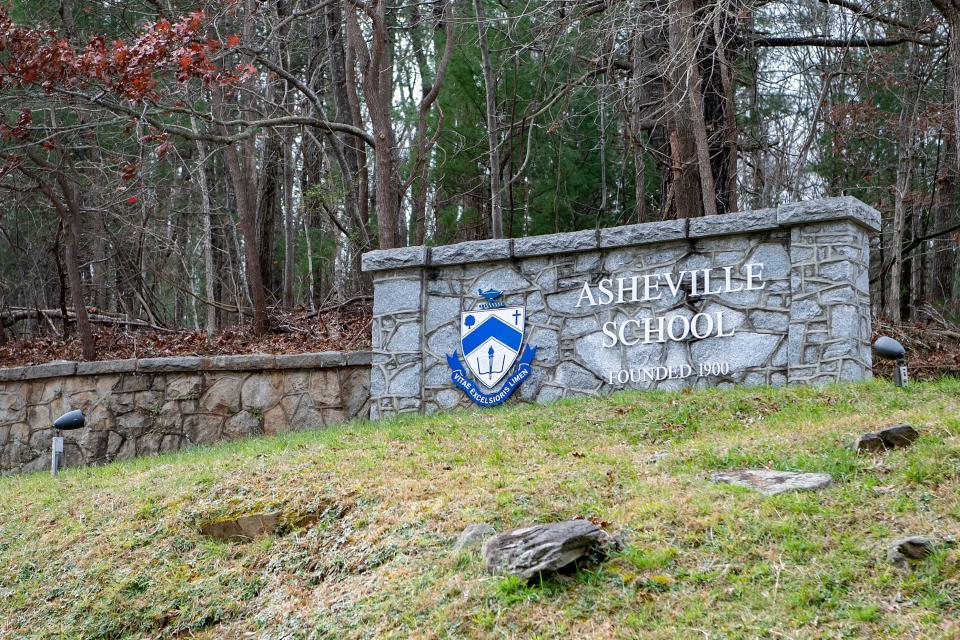
Agnes said of the report’s findings, “The school basically said that that was OK; that what happened to me was OK.
“They set the example that, first of all, if you come forward, you're not going to be listened to or heard, and you'll be invalidated,” she said.
“And for the girls, it sets the example like this behavior is OK to take, and for the guys, it's OK to do whatever you want to females, and males.”
The Title IX investigation was a process Agnes and her parents said was deeply flawed. Agnes said she was never interviewed by the school. She also said she was victim-shamed, received no emotional support from school administrators and faced continuous harassment from the boy.
Victim's father offered money to keep silent
Dr. Hill said the process was so flawed that Dr. Anthony Sgro, head of the school, made him an in-person offer of money for his silence. Hill said he never heard from Sgro or any school administrator for days after receiving the Oct. 9 email with the Title IX report’s final decision.
He said he planned to resign mid-year since he felt his family was in danger on campus.
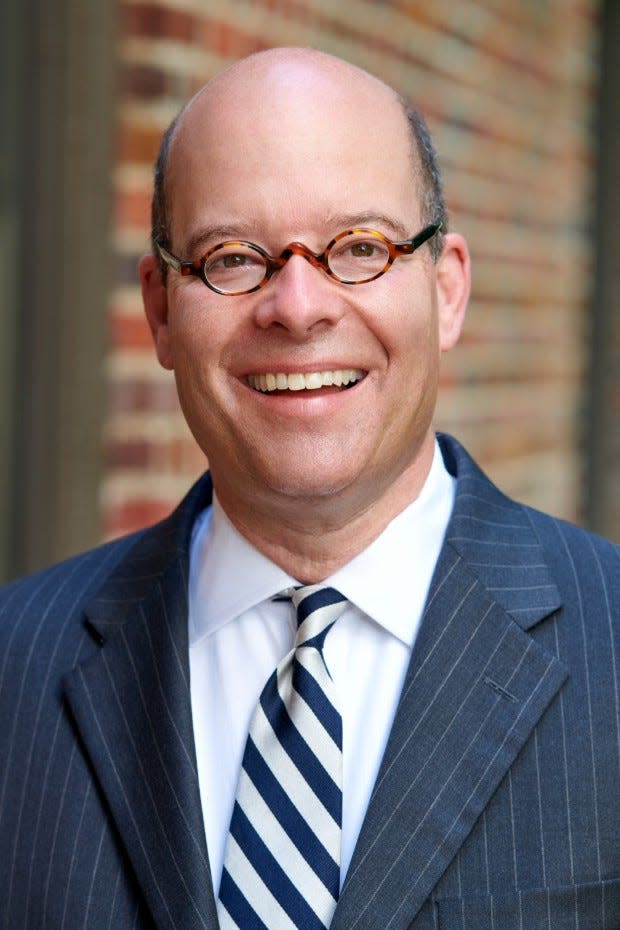
“I said my intention is to leave Asheville School. I asked for their consideration to continue to pay my salary through my contract, which is June of 2021, so my family and I could leave this place with dignity and restore our shattered lives,” Dr. Hill told the Citizen Times.
He said that on Oct. 19, Sgro asked to meet him outdoors on campus and handed him a folder with documents agreeing to pay his salary and benefits through June 2021, if Hill agreed to “explicitly sign away my first amendment rights (to free speech),” Hill said.
The document read, “Employee understands that by agreeing to the provisions of this Paragraph, he is waiving rights guaranteed by the First Amendment of the United States Constitution and any State counterparts.”
The document also demanded the silence of his wife, Moni Hill, and their three daughters, forever giving away their rights, or the rights of their heirs or associates, to speak of the alleged assault or the investigation and to never file a lawsuit against the school.
The Citizen Times reviewed the document, and asked Dr. Sgro for comment.
Leigh Ruhl, associate head of school for advancement, responded by email, saying she was speaking on behalf of Sgro.
“Dr. Hill was a valued member of our community, and we went to great lengths to find a way to keep Dr. Hill as a member of our faculty. While we do not share details about our deliberations with faculty, we can emphatically state that at no time did we restrict or attempt to restrict the First Amendment rights of any member of our community (nor would we be able to do so),” she said.
Dr. Hill said the request for silence is when things took a turn.
“Moni and I agreed right away that there was no way we were going to do that,” Hill said. “That is when the next level started, as we began composing our letters to the faculty."
In their emailed letters, the Hills said they didn’t want to “slink away” without everyone knowing exactly why they were leaving, and gave explicit details of the alleged assault against Agnes.
Dr. Hill said he worked through Oct. 31. Then, just as his fall vegetable garden and salad greens were starting to come in, the family moved out of their community of nearly 17 years, leaving Asheville School forever.
'Toxic' school environment
Dr. Sgro, a 1984 alum, took over as head of Asheville School July 1, 2019, replacing Arch Montgomery, who retired after 17 years in that position. Sgro answers to a board of trustees, chaired by Walter G. Cox Jr., a 1972 alum and the parent of an alum. Asheville School is a non-profit with assets of $96 million, according to its 2019 990 tax form.
Sgro did not respond to questions from the Citizen Times about the sexual allegation or investigation, but Ruhl sent an email saying, “We feel strongly we conducted a process that was thorough, appropriate and consistent with best practices.”
She also forwarded an email Cox wrote to fellow alumni Nov. 17.
In the email, Cox admitted the “Asheville School community has been shaken” by the “allegation of non-consensual sexual contact between two students,” adding that he had heard from alumni, students, faculty and parents who “expressed unease and exasperation” and some “even expressing concern about whether the school is upholding its most sacred promise: to protect students.”
Cox said after learning of the incident this past July, the school began the first Title IX investigation in its history.
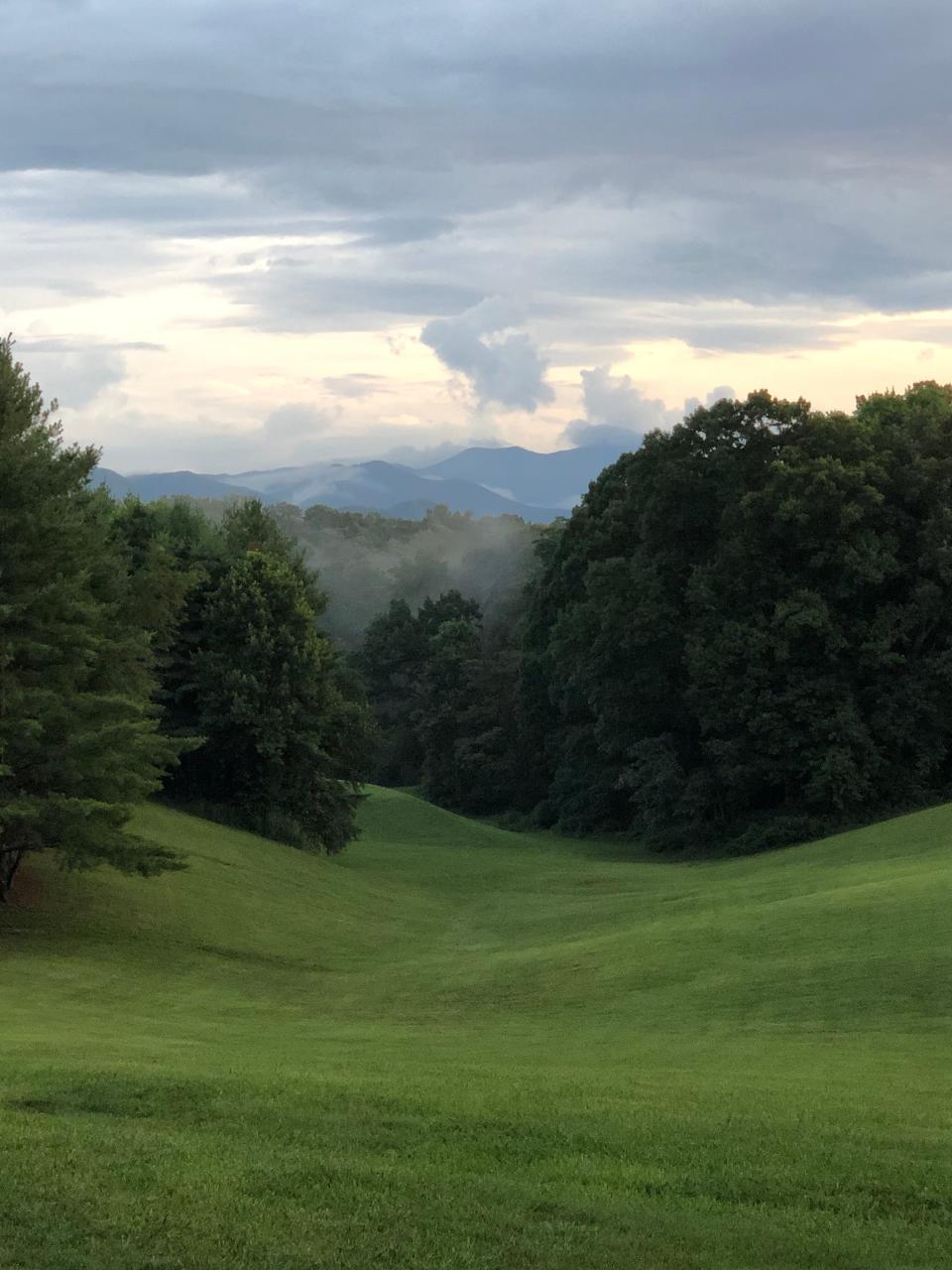
Title IX, commonly associated with gender equity in athletics, is more far-reaching. It is part of the Education Amendments of 1972, which prohibits gender-based discrimination in K-12 and colleges that accept federal funding, as well as prohibits sexual harassment and sexual violence.
Asheville School was required to conduct the federal investigation because it had accepted between $1-2 million in Paycheck Protection Program, or PPP, loans under the CARES Act to help small businesses protect employees during the COVID-19 pandemic.
More: N.C. private, charter schools reap millions in PPP loans
Before reporting the incident, Agnes said she had decided to leave Asheville School after her sophomore year because she didn't feel emotionally or physically safe.
“I had a lot of anxiety surrounding that event. I think quarantine helped me to step away from everything, and when I came to terms with everything I realized this is a very toxic environment, and I can't feel safe here. This isn't like a one-time thing. It’s like the culture, where things like this are just normalized,” Agnes said. “There’s a saying at school, ‘No means yes and yes means anal.’ Kids joke about it. I was like, ‘Oh whatever, they're just joking around.’ But those things happened to me, so they weren't kidding,” Agnes said.
Student's childhood and family shattered
Agnes has never known a home other than Asheville School, which sits on a 300-acre campus largely hidden by woods and brick walls from the everyday hubbub off Smokey Park Highway.
It is a 120-year-old institution with 295 students this year from 16 states and 18 countries.
When the Hill family moved to Asheville in 2004, the father came to teach math and lead that department. The family, which includes two other daughters, one who graduated from Asheville School in 2019, lived in a house on campus.
Related: Asheville School named NC's 'most beautiful private high school' by Architectural Digest
Moni Hill said many in the small, family-like community loved her daughter because of her smiling eyes and sweet disposition. She said Agnes took her first steps on the hockey field of the alleged assault, learned to swim in the campus pool, and ran cross country on the forested campus trails.
It is a non-denominational school that maintains a Christian tradition, with a campus chapel, a chaplain and two required chapel services a week.
The family planted flowers, a pollinator garden to attract bees and butterflies, and grew vegetables like tomatoes and peppers.
In addition to teaching math, Mike Hill was a mountaineering instructor, supervised dormitories on weekends and at study hall, helped plant more than 1,000 trees on campus and started the school’s recycling program.
Related: Asheville School first landowner in city to hold deer hunt under new firearm ordinance
While no current faculty or staff contacted by the Citizen Times would comment for this story, Alexa Caldwell, a history teacher at Asheville School from 2011-2014, described the Hills as “wonderful parents” and a “model family,” and Mike Hill as “sweet, sensitive and well-respected.”
Moni, an established artist, painted in their garage, converted into a studio, and was entrenched in the school’s daily life, often serving as a sounding board for new students and families. She shared in childcare and carpools.
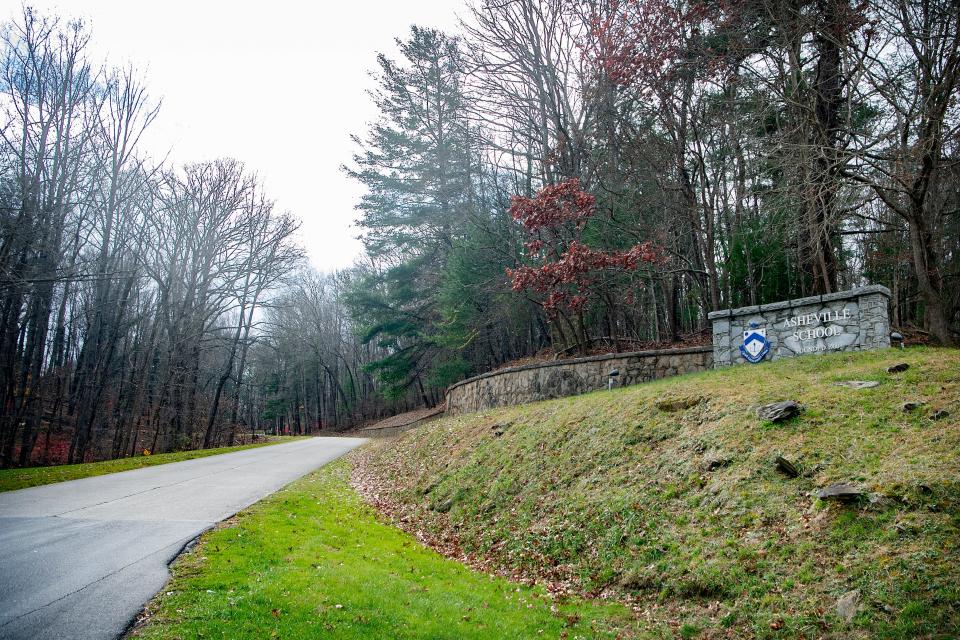
“I still believe that the school has a top-notch faculty, and I felt proud to have my kids go to school there,” Moni said.
But when Agnes started to shrink away from a social life over the past year, stopped hugging her mother, lost interest in exercise and said she wanted to leave the school, the Hills were distraught.
“We didn’t know why she felt the way she did about Asheville School, but we could see a vast difference in her mood and behavior from when quarantine started. It's like her nervous system got to relax,” Moni Hill said.
The Hills honored their daughter’s wishes and withdrew her, but the family still lived on campus. During the quiet time of the COVID-19 pandemic, when students went to online learning, and she was distanced from other students and the boy, Agnes said she found her voice.
“I had hoped that Asheville School would take my story seriously, and I would get the justice I deserved in order for me to feel some sort of closure. That is not what happened,” she said.
Coming forward was the hardest decision she ever made, Agnes said. Agnes told her sister, Claire, about the alleged assault soon after it happened, but asked her not to tell their parents because she “felt so much shame.”
“I am just amazed by her all the time, the way that she's handled this whole thing that no person should ever have to deal with, but she's doing it,” Claire told the Citizen Times. “I just admire her strength every single day.”
Related: As violent crime increases, Asheville Police launch app to anonymously report tips
A year later, after months of counseling, Agnes told her psychotherapist.
“I finally became sure of myself. My therapist helped me process it, I guess, and she confirmed to me that my feelings were valid, and that it was a sexual assault,” Agnes said.
“(The respondent) in his affidavit, he just came for me, basically slut-shaming me and just saying all these rumors that he'd heard to try and make it like I asked for it. And that really got to me. That's the reason that I got very angry and I was like, ‘OK, I'm not anonymous anymore.’ He can’t just say those things about me that aren't true.”
Did Asheville School ignore its own Code of Conduct with Title IX investigation?
Mike and Moni Hill assert that the school did not adhere to its code of conduct — which includes no smoking, drinking or sexual intimacy — nor to state criminal laws when administrators learned from the respondent’s affidavit that he admitted to the sexual act.
“The school noted that both parties acknowledged that sexual contact occurred — (the respondent) did not dispute that he inserted his fingers into Miss Hill’s vagina. Accordingly, the question was whether (the respondent) had consent to insert his fingers in Miss Hill’s vagina,” Maag wrote in her decision.
“While Miss Hill reported that (the respondent) did not have consent, (the respondent) responded that he understood Miss Hill to have consented from his interactions with her, and by the manner in which she reacted.”
The school’s conduct code says sexual intimacy at Asheville School is “inappropriate” and “dangerous behavior the consequences of which neither the School nor the minors in its care are prepared to bear,” and that students who engage in sexual behavior “can find themselves facing disciplinary action and/or required counseling.”
More: Asheville School Title IX sexual assault investigation had 'indelible taint,' says alumni group
As parents, the Hills said they were stunned by the outcome of the Title IX report. They said the investigation was mishandled, dismissive and insensitive to their young daughter.
“For society to progress in the awful realm of sexual assault, protecting innocent people from undo suffering and holding offenders accountable, leaders and institutions must stand up to do the right thing,” Mike Hill wrote in an email to the school community just before the family moved in October.
“Asheville School did not do this. It failed Agnes, the Hill Family, the Asheville School community, and even the boy who assaulted Agnes,” he wrote.
While the school and board of trustees maintain they followed the letter of the law in the investigation, in an email from Board Chair Cox, they seemed to also admit their own failings.
Plan of action going forward
Cox said since the school had no experience with Title IX, it had to turn to “lawyers fluent in Title IX programs at independent schools to guide us through the process.”
However, as a result of the incident and Title IX investigation, the school’s board of trustees and leadership say they are putting a plan of action into effect to better handle future similar situations.
These include appointing an ad hoc committee to review that the Title IX process was properly conducted, led by former board chair Gil Prince, with a female majority and made up entirely of faculty, alumni or parents of alumni.
The team has been asked to deliver its findings to Cox before the end of December.
Related: Asheville High, SILSA to make changes in wake of sexual assault report
Sgro announced the school would be committing an initial investment of $100,000 to design a “permanent curriculum program to further educate students about healthy and respectful interpersonal relationships.”
None of the administrators contacted by the Citizen Times would explain the curriculum further.
In addition, Cox said the school will be enhancing on-campus support services for students.
On Nov. 25, the Hill family filed a Title IX complaint against Asheville School directly with the U.S. Department of Education’s Office for Civil Rights, to investigate whether the school properly followed Title IX rules in its investigation.
Did school violate the law?
In addition to any alleged criminal actions on the part of the male student, the school might be in violation of the state mandatory reporting law, experts say.
The law, strengthened to protect children from sexual violence, which went into effect Dec. 1, 2019, states, “Any person 18 years of age or older who knows or should have reasonably known that a juvenile has been or is the victim of a violent offense, sexual offense, or misdemeanor child abuse under G.S. 14-318.2 shall immediately report the case of that juvenile to the appropriate local law enforcement agency in the county where the juvenile resides or is found.”
David, the attorney with N.C. CASA, said there are exemptions to the law for psychologists and licensed social workers. But, she said, school administrators are not exempt.
Ruhl said she could not comment on whether the school filed a police report. However, APD spokesperson Christina Hallingse, said the school has not filed a report in 2020.
Related: Football photos 2020: Asheville School vs Christ School
Asheville Police Capt. Joe Silberman, who is over criminal investigation but did not speak about the Asheville School case in particular, said while the mandatory reporting law applies specifically to adults, anyone can come forward if they see or suspect a child being mistreated, including the child themselves.
Contrary to popular belief, he said, it doesn’t matter where an assault occurs, whether it’s a church, Boy Scouts or Girl Scouts, a mall, or a school, a victim can go directly to the police without involving that institution’s authorities.
“Anyone of any age can call the police,” Silberman said. “There is no responsibility to go to leadership first.”
People can call the police “after any kind of behavior that occurs without consent. Consent means permission,” Silberman said.
“If it makes you uncomfortable, it is time for you to tell somebody that you feel is a safe person — a parent, a counselor, an older sibling, a more responsible friend, a doctor, are all excellent people to start talking to about this,” he said, adding Our Voice or any rape crisis advocacy center.
Related: Police investigate report of sexual assault at Asheville High
Children and adults can also call 828-250-6900 or go to the Buncombe County Family Justice Center, 35 Woodfin St., a safe place to report sexual assault. Silberman said there are advocates present who are trained specifically to speak with juveniles, and victims can also ask to speak with a female advocate or police officer.
Asheville School campus outrage
Agnes said she is no longer friends with the students on the blanket that day, but many students were also outraged.
Senior female students organized a walkout, held after classes Nov. 10. Sgro, in an email to parents that day, said the demonstration “was set into motion by the outcome of the School’s recent Title IX investigation into an allegation of sexual assault related to consent between two students.”
The Hills say the walkout was in support of Agnes and was initiated by girls, who asked male students to attend, but to stand behind them, and to wear black to show their support for Agnes and all victims of sexual assault.
Boys, as well as male and female faculty, joined the silent protest, the Hills said.
Agnes said she would like two things to happen — for the respondent to be expelled to prevent him from harming other girls, and for Sgro, whom she said has never spoken to her since the investigation, to look her in the eye and apologize.
“On the inside, I felt like I was dying. (The boy) took away my power that day. This process was supposed to help me regain my power. I expected more from the school. The assault affected me not only mentally, but physically. I was left feeling extremely violated. I have come a long way, and I still have healing to do,” Agnes wrote in an email to the campus community when she left.
“Asheville School tried to invalidate my truth. I will not let that happen. It took a lot of courage for me to report and a lot of second-guessing. I will not let them invalidate me … My family and I have done everything we could to seek justice at Asheville School. I am passing the torch, if not for me, for every other female on this campus.”
Timeline
May 21, 2019: Agnes is allegedly sexually assaulted on Asheville School campus.
July 1, 2019: Dr. Anthony Sgro, a 1984 alum, takes over as head of Asheville School.
Dec. 1, 2019: State mandatory reporting law, strengthened to protect children from sexual violence, goes into effect.
May 2020: Agnes confides in her therapist about alleged assault.
July 24: Asheville School begins first Title IX investigation in its history.
Aug. 25: (Respondent) files sworn affidavit.
Sept. 4: Agnes responds in a sworn affidavit.
Oct. 9: School issues final decision.
Oct. 15: Dr. Hill resigns in email to Sgro.
Oct. 19: Sgro meets with Dr. Hill on campus, offers non-disclosure agreement.
Oct. 27: Hill Family files criminal complaint with Asheville Police.
Nov. 10: Senior female students organize walkout.
Nov. 25: Hill Family files Title IX complaint against Asheville School directly with the U.S. Department of Education’s Office for Civil Rights.
Sexual assault help
Buncombe County Family Justice Center: Call 828-250-6900 or go to the center at 35 Woodfin St., Asheville.
Our Voice (rape and sexual assault crisis center for ages 13 and older): Call the 24-hour hotline at 828-255-7576 or text VOICE or VOZ to 85511
Karen Chávez has been a journalist for 25 years, including an editor and reporter for the past 20 years for the Asheville Citizen Times and USA TODAY Network. Email her at KChavez@CitizenTimes.com or follow her on Twitter @KarenChavezACT.
Read more outdoors news: www.citizen-times.com/outdoors
This article originally appeared on Asheville Citizen Times: Teen girl alleges sexual assault at elite Asheville School

